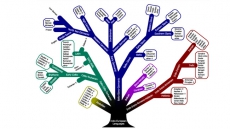People with higher levels of the reproductive hormone testosterone and the stress hormone cortisol are more likely to repeatedly engage in cheating and other unethical behaviour, a new study suggests.
First, elevated hormone levels predict likelihood of cheating. Then, a change of hormone levels during the act reinforces the behaviour, the study said.
"Although the science of hormones and behaviour dates back to the early 19th century, only recently has research revealed just how powerful and pervasive the influence of the endocrine system is on human behaviour," said corresponding author of the study Robert Josephs, professor of psychology at The University of Texas at Austin.
For the study, the researchers asked 117 participants to complete a math test, grade it themselves and self-report the number of correctly completed problems.
The more problems they got correct, the more money they would earn.
From salivary samples collected before and after the test, the researchers found that individuals with elevated levels of testosterone and cortisol were more likely to overstate the number of correctly solved problems.
"Elevated testosterone decreases the fear of punishment while increasing sensitivity to reward. Elevated cortisol is linked to an uncomfortable state of chronic stress that can be extremely debilitating," Josephs said.

"Testosterone furnishes the courage to cheat, and elevated cortisol provides a reason to cheat," Josephs explained.
Additionally, participants who cheated showed lowered levels of cortisol and reported reductions in emotional distress after the test, as if cheating provided some sort of stress relief.
"The take-home message from our studies is that appeals based on ethics and morality -- the carrot approach -- and those based on threats of punishment -- the stick approach -- may not be effective in preventing cheating," Josephs said.
"By understanding the underlying causal mechanism of cheating, we might be able to design interventions that are both novel and effective," Josephs pointed out.
The study appeared in the Journal of Experimental Psychology: General.





